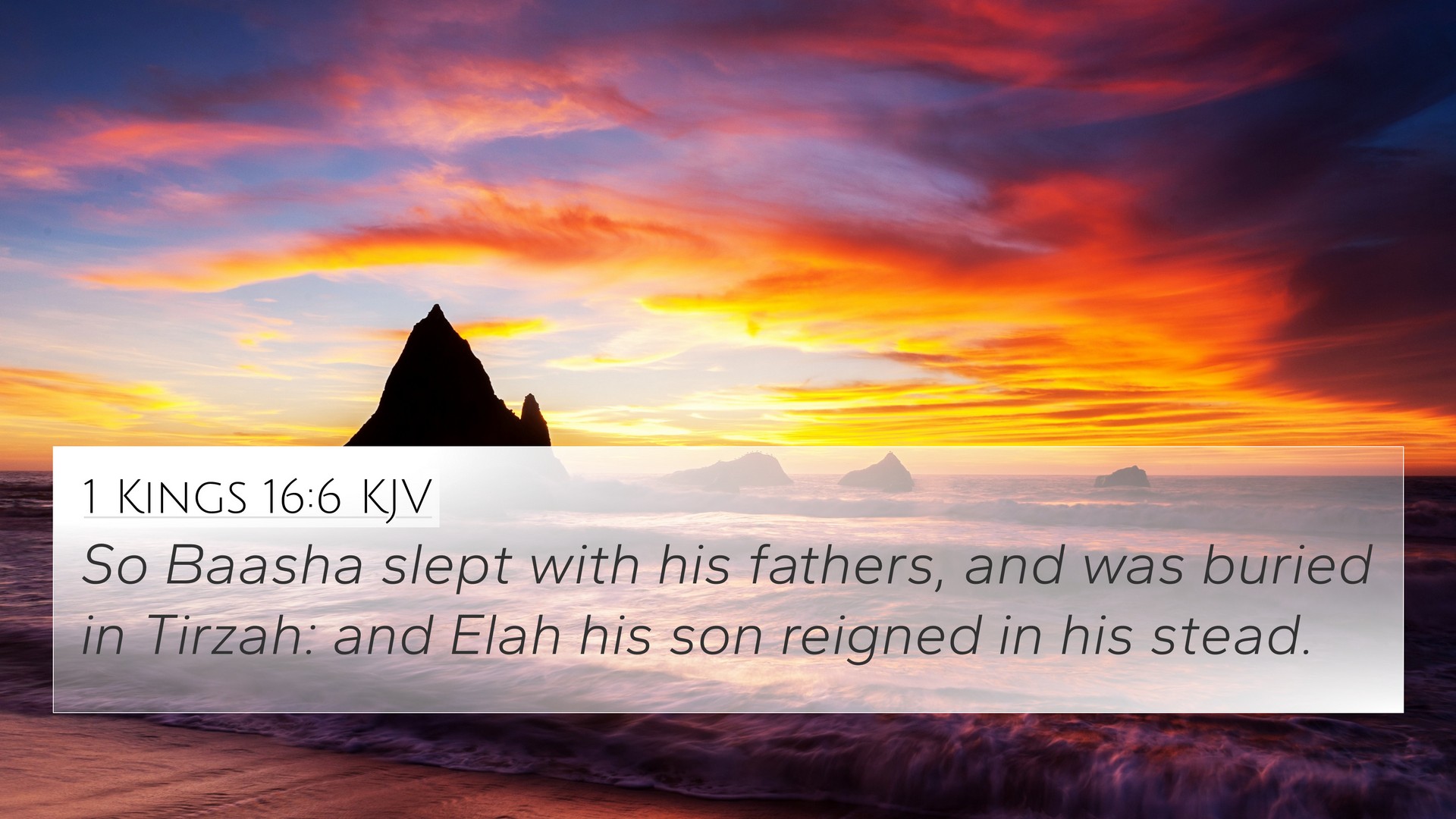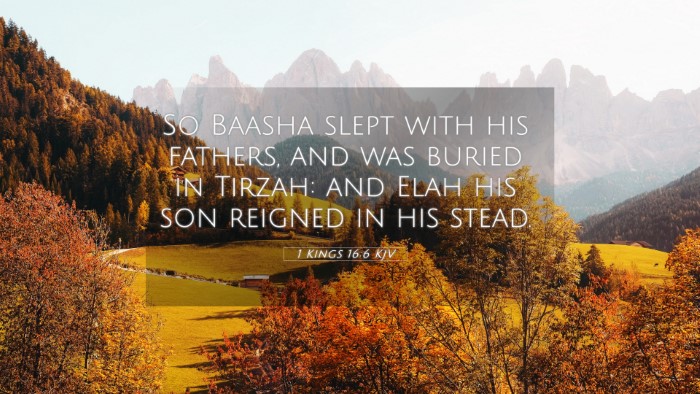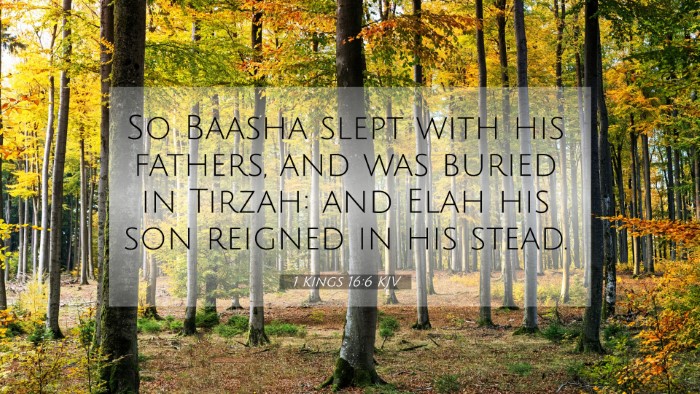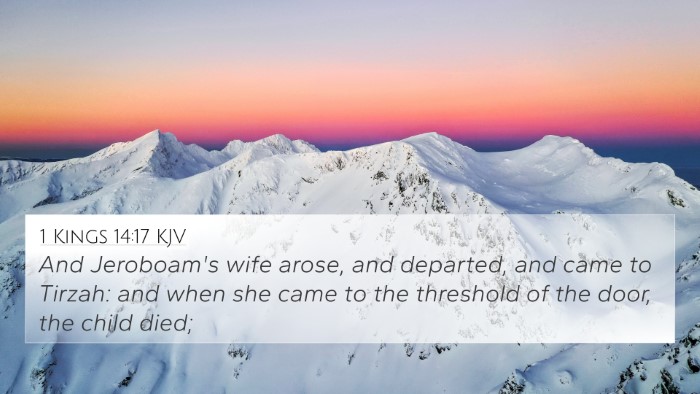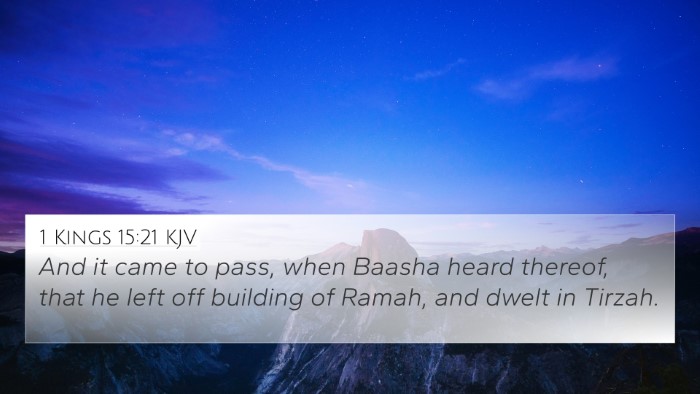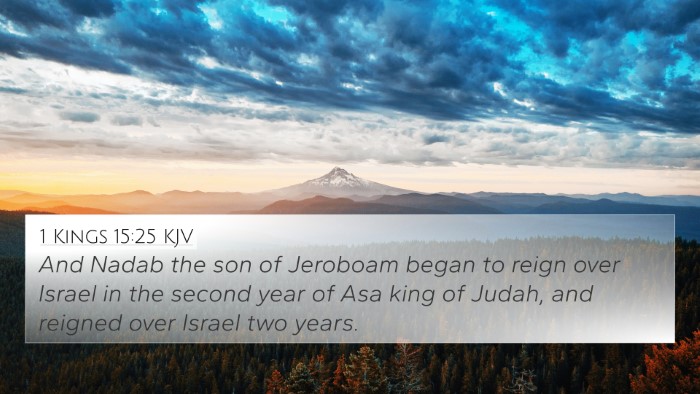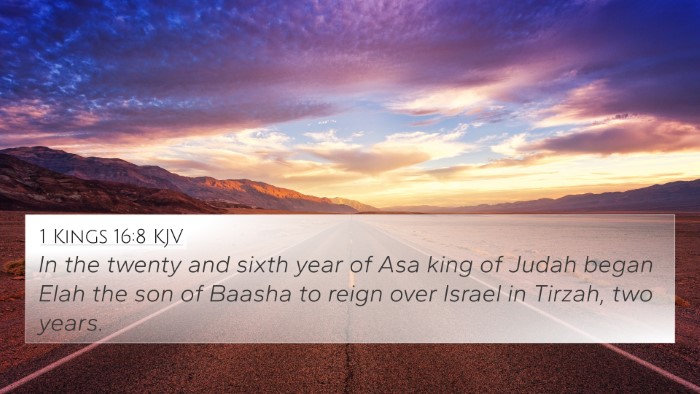Understanding 1 Kings 16:6
Verse: "So Baasha slept with his fathers, and was buried in Tirzah: and Elah his son reigned in his stead." (1 Kings 16:6)
Summary of Meaning
This verse marks a significant transition in the history of Israel's monarchy, as it concludes the reign of Baasha and introduces his son Elah. The death of Baasha is noted in a straightforward manner, emphasizing the continuity of leadership among the kings of Israel.
Insights from Public Domain Commentaries
Matthew Henry's Commentary
Matthew Henry points out the brevity with which the histories of these kings are often recorded, implying a divine perspective on their significance. Baasha's death is seen not only as a historical event but also as a reflection of God's judgment upon him for leading Israel into sin. The mention of his burial indicates proper honors were afforded to him, yet there's a subtle reminder that the ultimate measure of a king is not in his burial, but in his faithfulness to God.
Albert Barnes' Notes
Albert Barnes elaborates on the political implications of this transition. Elah's ascension illustrates the ongoing struggles and the dynastic changes that characterized Israel during this period. He notes that while Elah inherits the throne, the moral decay initiated by Baasha has lasting consequences for Israel. Bertie elaborates on the cyclical nature of sin and judgment that the Israelites experience, hinting at the influence of Baasha’s actions on his son’s reign.
Adam Clarke's Commentary
Adam Clarke offers a broader historical and theological perspective, noting how the deaths of these kings serve as reminders of the ephemeral nature of power. He emphasizes that each king, including Elah, is evaluated by their actions in relation to God's covenant. Clarke highlights that Elah’s reign doesn’t begin in isolation but is deeply connected to the failures and successes of his predecessors, creating a layered understanding of Israel’s monarchical history.
Cross-References
- 1 Kings 15:27-30 - Discusses the rise of Baasha and his actions against Nadab.
- 1 Kings 15:33-34 - A summary of Baasha's reign and his evil deeds before God.
- 2 Kings 15:25-26 - Mentions the events surrounding the end of Elah's reign.
- Jeremiah 7:29 - Reflects on the judgment of Israel, relevant to the kings' faithfulness.
- 2 Chronicles 16:1-6 - Highlights the ongoing conflict with the kings of Israel.
- 1 Chronicles 5:26 - Discusses the role of the kings and their relationships.
- 1 Kings 14:20 - The description of Jeroboam's lasting legacy and its ramifications.
- Hosea 1:4 - Speaks of God's judgment paralleling the history of Israel's kings.
- Acts 13:20 - References kings and the continuity of God's plan through leadership.
- Psalms 78:67-68 - Reflecting on God’s choosing of leaders based on righteous living.
Thematic Connections
The story of Baasha and Elah provides themes of divine judgment, the fleeting nature of earthly power, and the importance of righteousness in leadership. These themes resonate throughout the Bible, illustrating how the character and actions of a leader have consequences not just for themselves but for the people they govern.
Tools for Bible Cross-Referencing
Understanding verses like 1 Kings 16:6 is enhanced through various cross-referencing tools. Utilizing a Bible concordance can help identify related verses. A Bible cross-reference guide offers extensive insights and assists in drawing thematic links among scriptures. There are also many cross-reference Bible study methods available for deeper analysis.
Conclusion
1 Kings 16:6 serves as an important reminder of the historical and spiritual continuity in Biblical narratives. The interconnected stories of Israel's kings invite deeper study and reflection, making the use of Bible reference resources essential for anyone seeking a comprehensive understanding of scripture.
